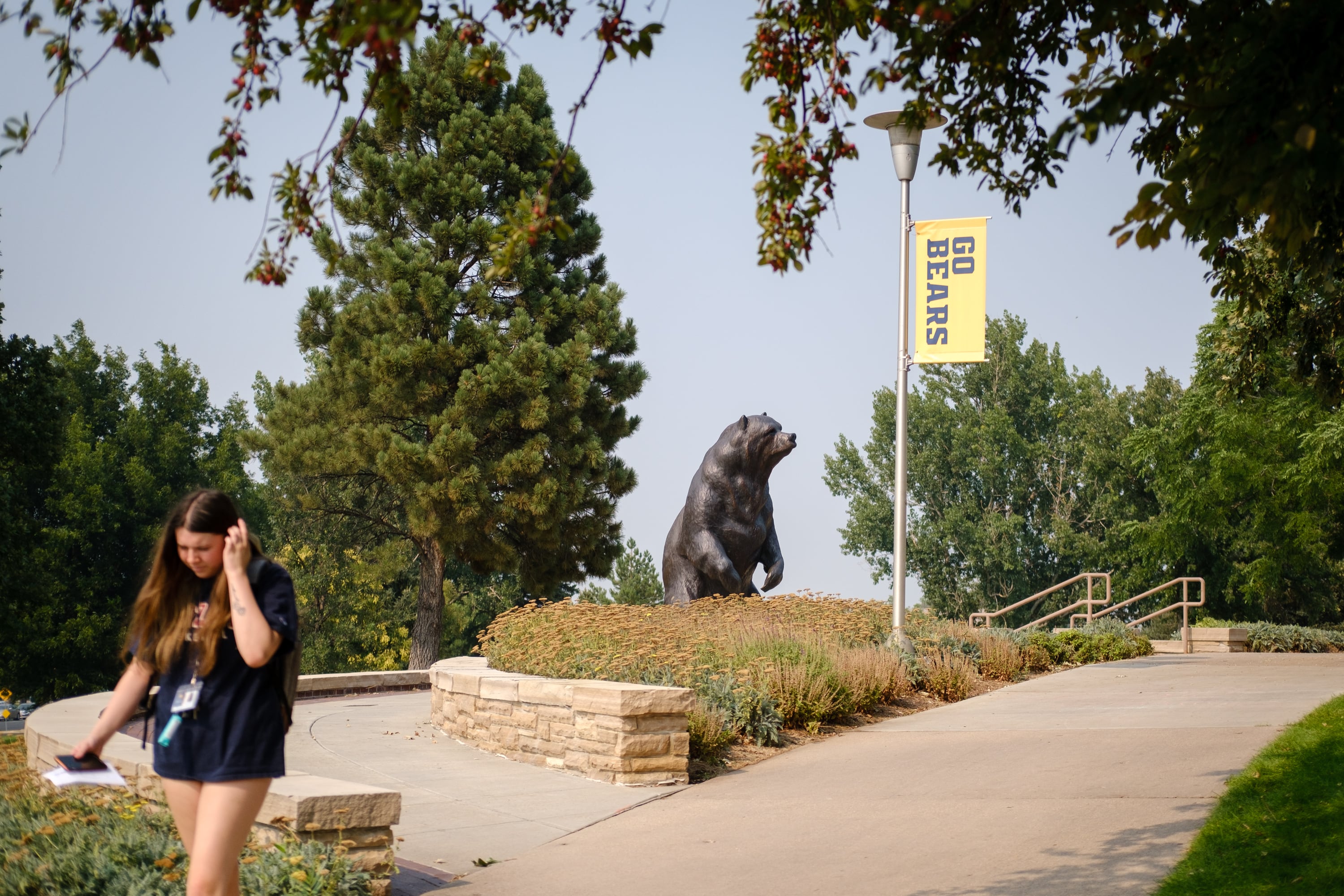Sign up for our free monthly newsletter Beyond High School to get the latest news about college and career paths for Colorado’s high school grads.
Is college worth it? It can be, but students need to have better information about what a college education can lead to.
According to a recent Colorado report, residents who complete college fare much better than their counterparts. In fact, those who finish a bachelor’s degree greatly outearn residents with only a high school diploma by several hundred dollars a week.
The annual 2023 Higher Education Return on Investment Report commissioned by lawmakers provides a high-level look at how Colorado students fare if they get a college certificate, associate degree, or bachelor’s degree. This year’s report shows the debt held by college graduates has dropped and in-demand jobs are expected to grow, but there are still pay gaps for college-educated residents.
The data shows white and Asian American graduates earn more than Black and Hispanic graduates.
The information in the report is crucial to help students make a decision about whether they should go to college, advocates said. They also say the state can go a step further by displaying more information that students can use, including which college programs benefit them the most.
TeRay Esquibel, Ednium: The Alumni Collective executive director, said the report helps build a collective understanding of what students can expect if they go to college. In recent years, students, especially those who are from low-income backgrounds, have questioned more and more whether to go to college due to high tuition and debt.
Esquibel said even more data can not only help students decide if they want to go, but decide which college to enroll in. His organization provides Denver Public Schools graduates resources to prepare themselves for college and careers.
He said he hears from students who want to understand whether they’re going to be able to take care of their family or give back to their community by going to college. They don’t want to be stuck with high debt and no support once they graduate.
“Students should be able to ask the question, ‘if I make this investment, what do I get out of it?’” Esquibel said. “I don’t know anybody that would make an investment of four years of time and potentially tens of thousands of dollars without being able to ask the question, ‘What can I expect?’”
Below are three takeaways from this year’s report.
Graduates are leaving with less debt
This year’s report reaffirms that higher education continues to be important.
About 91% of Colorado jobs with the potential to provide an income that can support a family of three require some education beyond high school — either a college certificate, associate degree, or bachelor’s degree.
Student debt, however, can cut into the ability of students to make enough money to support themselves.
The good news is that the total amount of debt among Colorado public college and university graduates has declined in recent years. Colorado students who earn a bachelor’s carried a debt load on average of $25,200 in 2022, down $1,300 from 2016. And community college graduates leave with about $12,900 in debt, down by $900 during the same time period.
Van Schoales, the Keystone Policy Center’s senior policy director, said the data surprised him, but shows there’s a greater return on going to college now. The nonprofit works with policy leaders on contentious topics to reach common ground.
“I think that’s a really bright light for Colorado,” he said.
Job growth in Colorado continues to look promising
Across Colorado, job growth among the top in-demand jobs will continue to grow by 1.3% over the next five years.
The healthcare and social assistance job sector — which includes nurses and youth and family social workers — is expected to see the greatest increases, growing by over 35,000 jobs.
But Colorado has struggled to fill many jobs, with two available jobs for every unemployed person.
Katie Zaback, Colorado Succeeds vice president of policy, said she hopes the data is shared widely throughout the state and in a way that’s helpful for students. Colorado Succeeds is a coalition of business leaders interested in improving education and training for students.
“We need to do more to help students understand what those programs are, what kind of jobs they lead to, and what the demand for different jobs are so that they can make smart choices about what they want to pursue,” she said.
There are still big gaps in who benefits the most
Colorado Black and Hispanic residents who graduate with a bachelor’s degree make less than their peers, the report shows.
The report says those wage gaps have marginally decreased in the last decade. But the state must also do more to bolster inclusion in the state’s workforce, according to the report.
Esquibel said equitable access to information about college should be a foundational key to getting more students from low-income backgrounds interested in what college has to offer.
He hopes the report isn’t just read by policymakers, he said, but displayed in a way that’s accessible to teachers, students, and families.
“We’re seeing a huge swath of students that are coming from low-income backgrounds dismiss college out of hand because nobody can give them a tangible sense of what their return on investment is going to be,” he said.
Jason Gonzales is a reporter covering higher education and the Colorado legislature. Chalkbeat Colorado partners with Open Campus on higher education coverage. Contact Jason at jgonzales@chalkbeat.org.





